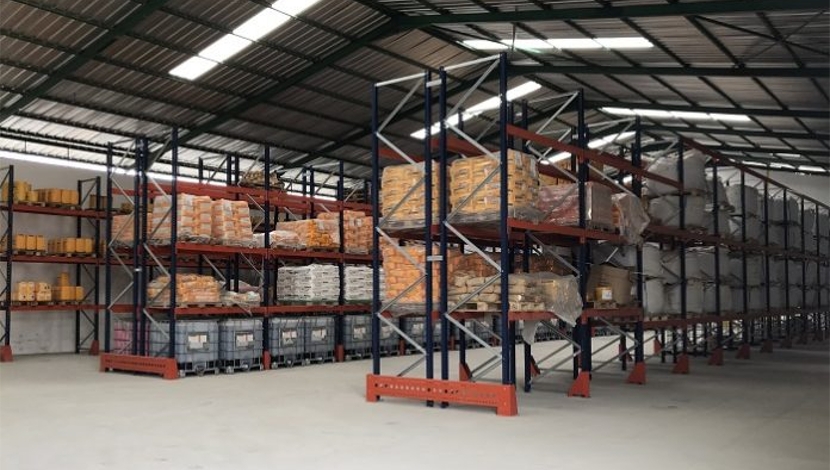
If South Africa is to prosper and meet its full potential then we must have sustainable human settlements that are socially acceptable and able to support economic development and expansion.
This is according to Nico Pienaar, director of the Aggregate and Sand Producers Association of Southern Africa (Aspasa), who says that sustainability is not just the domain of environmentalist, but refers rather to the whole supply chain within the construction and infrastructure development process.
This includes the use of quality products and skilled labour. It also includes the protection nature where building material are derived from and requires building products and services to be made available at a fair and equitable price.
Start at the beginning
“Looking around the country it is clear that much work is needed, as there are still many communities without proper housing. Urbanisation is putting further pressure on our cities’ infrastructure and facilities and these too need to be upgraded in order to properly service communities.
“In future South Africa will need to create cities where economic and social systems actually support the notion of long-term sustainability. We will also need to create work and living spaces that enable the creation of jobs and that facilitate wealth-building. Communities can then become more socially coherent and this will enable individuals to work together for the greater good of their own societies.
“This can only be done if people have proper shelter and decent affordable housing. They need to have a liveable environment and have a sense of belonging, as well as a sense of pride in their surroundings and in their city. Infrastructure must therefore be created that will enable the ongoing sustainability and improvement of these areas,” says Nico.
Formalising the industry
He adds that industry associations such as Aspasa play an important role in the sustainable construction industry. Aspasa members, for example, supply the key ingredients of all building and construction projects in the form of sand and stone which makes up the vital building blocks of concrete structures and road construction etc.
At the core of its existence the association’s main purpose is to look after the long term sustainability of the quarrying industry by aligning it with legal, quality, environmental, labour and social requirements etc. The building industry can improve sustainability simply by dealing with accredited sustainably operated suppliers (of building materials), as well as denouncing unscrupulous and illegal suppliers.
While the regulated (legal) quarrying industry is constantly busy cleaning up its act and ensuring that social environmental , health and safety obligations are being met, the illegal operators are still selling their goods willy-nilly and severely impacting the sustainability of the legal trade in South Africa.
On the right path
“In order to be truly sustainable the building industry needs to follow certain steps that will ensure that the structure and roads they build will last, as well as ensuring their businesses remain profitable in future. By supporting quality suppliers they are in-turn ensuring that they become quality builders. As a measure of construction sustainability we suggest companies throughout the supply chain adopt:
• Sustainable and energy efficient designs
• Environmentally friendly practices
• Sustainable maintenance practices
• Materials must be produced in a sustainable way
• Quality of materials should be a prime concern
• Surrounding communities should derive maximum benefit from all building and construction activities
• Skills development and job creation should leave a sustainable legacy
“In addition, role players need to be identified to drive development and act in a leadership role to ensure sustainability,” Explains Nico.
Identifying role-players
He continues that Government is the first and most important role player as it needs to focus on infrastructure development. Schools, hospitals, police stations, houses, roads and other key structures need to be planned, developed and made to service the community in a sustainable manner.
The money allocated through the fiscus needs to be spent wisely to ensure it ticks all the boxes of sustainability in terms of environment, social, environmental etc. This is the infrastructure that is put in place to facilitate economic development and facilitate employment and social coherence. No corners can be cut at this stage as it will form the basis of all future developments, will create social cohesion, create jobs etc.
Government also has a role to play to regulate the quarrying industry and create a level playing field by stopping illegal mining, preventing imports of cheap inferior building materials, cement etc. In this way quality local producers can create jobs and create a thriving and lively upstream building supply industry.
Building industry professionals
Following Government’s role, it is the responsibility of our built-environment professionals to strive for sustainability in terms of quality, as well as social and economic upliftment. In terms of building materials the sustainability of supply can be done by simply insisting on locally produced cement, Aspasa accredited aggregates and correctly manufactured readymix concrete from an accredited supplier.
When dealing with industry association-accredited suppliers professionals can rest assured that the companies comply with regulations, products meet standards as laid out by the South African Bureau of Standards (SANS), suitable care is taken of employment conditions, the environment are surrounding communities etc.
“For this reason we plead with role players to look at the big picture when planning for sustainability. Government and building professionals need to look beyond the use of “green” products for new developments. In order to have a truly sustainable building industry we need to make sure the products we use are ethically derived and comply with standards etc.
We also need to deal with suppliers and contractors that are focussed on true sustainability in terms of social, environmental and economic upliftment of the region and the country,” concludes Nico.
Aspasa, Nico Pienaar, Tel: (011) 791 3327, Fax: 086 647 8034, Email: nico@aspasa.co.za, Web: www.aspasa.co.za





